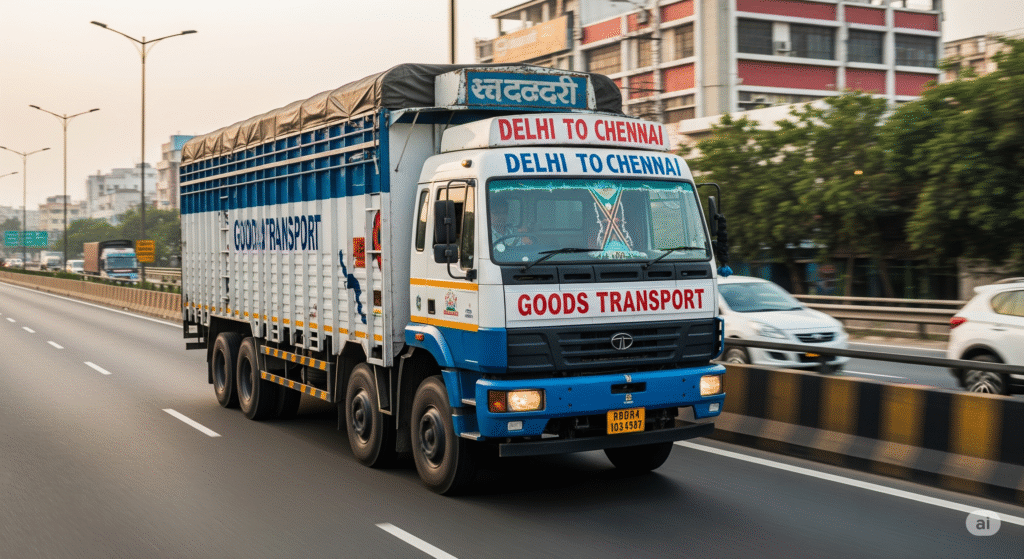Comprehensive Guide to Goods Transport from Delhi to Chennai
Transporting goods from Delhi to Chennai is a common requirement for businesses, traders, and individuals relocating. With a distance of approximately 2,200 km, choosing the right mode of transport is crucial for cost, speed, and safety. This guide covers the best options, costs, documentation, and tips for hassle-free goods transportation.
Modes of Transport from Delhi to Chennai
1. Road Transport (Truck/Tempo)
- Best for: Large shipments, heavy cargo, and flexible schedules.
- Options: Full truckload (FTL), part truckload (PTL), or small parcel services.
- Transit Time: 4–7 days, depending on route and weather.
- Cost:
- FTL (32 ft truck): ₹50,000–₹70,000
- PTL (per kg): ₹8–₹15/kg
- Small parcels: ₹1,000–₹5,000 (based on weight)
Top Road Transport Companies:
- Agarwal Packers and Movers
- Gati KWE
- VRL Logistics
- DTDC
2. Rail Transport (Indian Railways)
- Best for: Cost-effective, bulk cargo, and non-perishable goods.
- Options:
- Parcel Service: For small to medium shipments.
- Freight Trains: For large industrial consignments.
- Transit Time: 5–10 days.
- Cost: ₹3–₹8/kg (cheaper than road for bulk shipments).
How to Book?
- Visit Indian Railways Parcel Booking at major stations like Delhi Junction (NDLS).
- Use private rail partners like Container Corporation of India (CONCOR).
3. Air Cargo (Fastest Option)
- Best for: Urgent, high-value, or perishable goods.
- Options:
- Domestic Airlines (Air India, IndiGo, SpiceJet Cargo).
- Dedicated Cargo Services (Blue Dart, DHL).
- Transit Time: 1–2 days.
- Cost: ₹15–₹40/kg (higher for heavy shipments).
Top Air Cargo Providers:
- Blue Dart Aviation
- DHL Express
- FedEx India
4. Courier Services (Small Parcels & Documents)
- Best for: Small packages (under 30 kg).
- Top Couriers:
- DTDC, Delhivery, FedEx, India Post.
- Transit Time: 3–5 days.
- Cost: ₹200–₹1,500 (based on weight & urgency).
Key Factors Affecting Transport Costs
- Weight & Volume: Heavy/bulky goods cost more.
- Type of Goods: Fragile, hazardous, or perishable items need special handling.
- Distance & Route: Longer routes or tolls increase costs.
- Seasonal Demand: Prices rise during festivals or peak seasons.
Essential Documents for Goods Transport
- Invoice & Packing List
- Transport Receipt/LR (Lorry Receipt for trucks)
- GST Details (for business consignments)
- ID Proof (Aadhaar/PAN for verification)
Tips for Safe & Cost-Effective Transport
✔ Compare Quotes – Check multiple logistics providers.
✔ Insurance – Opt for cargo insurance for high-value goods.
✔ Pack Securely – Use bubble wrap, wooden crates for fragile items.
✔ Track Shipments – Use GPS-enabled services for real-time updates.
Conclusion
Choosing between road, rail, air, or courier services depends on budget, urgency, and nature of goods. For bulk shipments, rail or road is economical, while urgent deliveries should use air cargo. Always verify the transporter’s credibility before booking.




